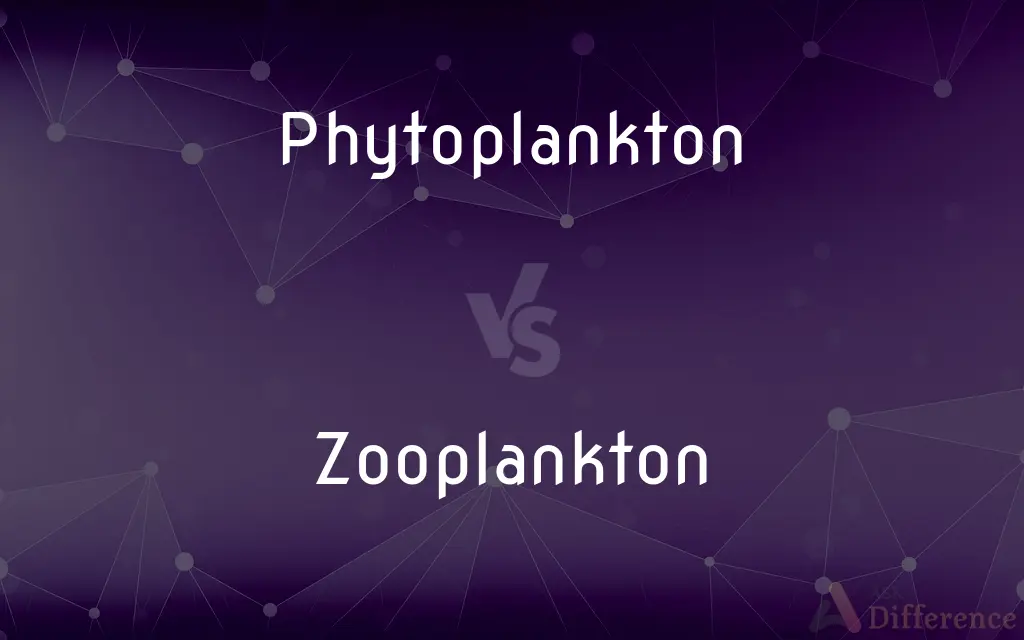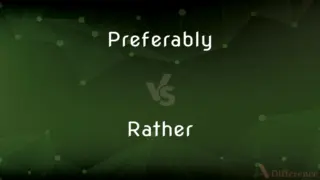Phytoplankton vs. Zooplankton — What's the Difference?

Difference Between Phytoplankton and Zooplankton
ADVERTISEMENT
Compare with Definitions
Phytoplankton
Phytoplankton () are the autotrophic (self-feeding) components of the plankton community and a key part of ocean and freshwater ecosystems. The name comes from the Greek words φυτόν (phyton), meaning 'plant', and πλαγκτός (planktos), meaning 'wanderer' or 'drifter'.Phytoplankton obtain their energy through photosynthesis, as do trees and other plants on land.
Zooplankton
Zooplankton (, ) are heterotrophic (sometimes detritivorous) plankton (cf. phytoplankton).
Phytoplankton
Plankton that consists of minute plants and other photosynthetic organisms, including cyanobacteria, diatoms, and dinoflagellates.
Zooplankton
Plankton that consists of animals, including copepods, rotifers, jellyfish, and the larvae of sessile animals such as coral and sea anemones.
Phytoplankton
Plankton, especially those small in size, that obtain energy by photosynthesis.
ADVERTISEMENT
Zooplankton
(zoology) Free-floating small protozoa, crustaceans (such as krill), etc. and the eggs and larvae from larger animals.
Phytoplankton
Photosynthetic or plant constituent of plankton; mainly unicellular algae
Zooplankton
Animal constituent of plankton; mainly small crustaceans and fish larvae
Share Your Discovery

Previous Comparison
Preferably vs. Rather
Next Comparison
Chameli vs. Mogra













































